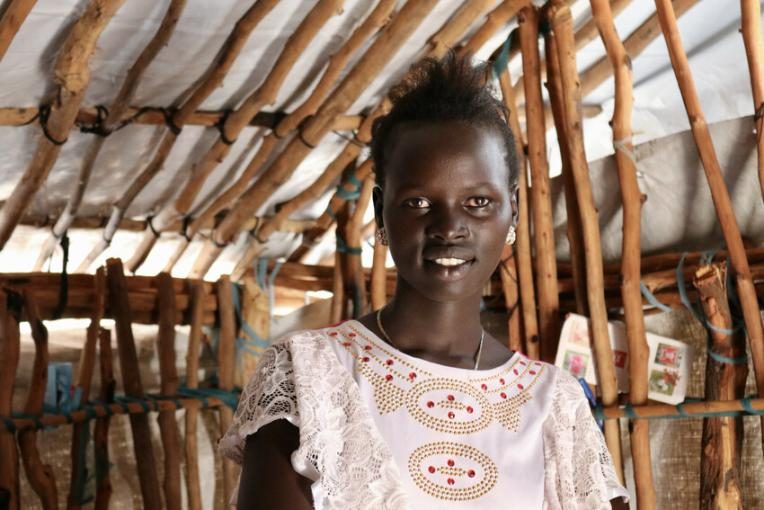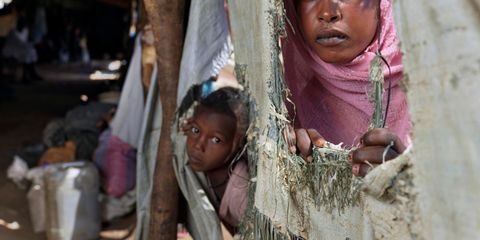Rebeca, 18, from South Sudan, explains how conflict and the food crisis are combining to have a detrimental effect on girls’ rights.

“People fled to the jungle to save their lives. We did the same. We ran away and stayed in a thick bush just under the trees where we ate wild food for days. After a month, we returned home, but there was nothing left. We see many conflicts. Cattle raiding is causing the most conflict in the communities.
We don’t have educated people in our community. People cut trees and sell the wood in the village to buy goods for survival. Many of the families get food from Plan International and the World Food Programme. This is the only food saving us for many years. Every 2 months we get the food. If we don’t get it, we won’t survive.
Children not sent to school
Nobody has harvested anything due to fear of armed conflict and floods. They have no work to do so they can’t buy shoes or clothes. Children are not sent to school, no matter whether it is girls or boys.
Most girls leave school after primary grade 5 and get married. This is a common practice in our country and in our community. Nobody says no to early marriage because girls are considered a source of income for their families. The boy’s family gives cows to the girl’s family to get married. Cows are the wealth here. My family did the same, they received 60 cows in exchange for my marriage 2 years ago.
“Most girls leave school after primary grade 5 and get married.”
Rebeca
Girls here cannot go to secondary school as there are no schools near here to continue further. I am one of them. Schools are closed due to COVID-19. Even when they are open, they lack toilets, furniture, and good teachers. Due to hunger, many girls don’t go to school, instead they stay at home and search for wild food to eat.
Learning for a better future
This is unusual here, but my husband consented for me to continue primary grade 8. I was allowed to attend school and sit for the exam. I was 1 of only 3 girls who took the exam from my community. Plan International supported me by providing me with education materials and helping the schoolteachers.
If I have an education, I can do everything. People who learn computer skills, get jobs. Once they have skills, they are recognised and respected. I am now waiting for my final exam results, but whatever they are, I don’t know where I can study further.”
Categories: Emergencies

